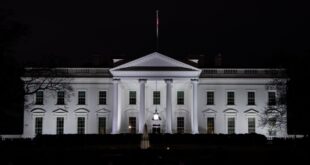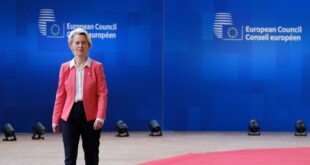The world is enveloped in a blanket of perpetual conflict. Invasions, occupation, illicit sanctions, and regime change have become currencies and orders of the day. One organization – the North Atlantic Treaty Organization (NATO) – is repeatedly, and very controversially, involved in some form or another in many of these conflicts led by the US and its allies. NATO spawned from the Cold War. Its existence was justified by Washington and Western Bloc politicians as a guarantor against any Soviet and Eastern Bloc invasion of Western Europe, but all along the Alliance served to cement Washington’s influence in Europe and continue what was actually America’s post-World War II occupation of the European continent. In 1991 the raison d’être of the Soviet threat ended with the collapse of the USSR and the end of the Cold War. Nevertheless NATO remains and continues to alarmingly expand eastward, antagonizing Russia and its ex-Soviet allies. China and Iran are also increasingly monitoring NATO’s moves as it comes into more frequent contact with them.
Yugoslavia was a turning point for the Atlantic Alliance and its mandate. The organization moved from the guise of a defensive posture into an offensive pose under the pretexts of humanitarianism. Starting from Yugoslavia, NATO began its journey towards becoming a global military force. From its wars in the Balkans, it began to broaden its international area of operations outside of the Euro-Atlantic zone into the Caucasus, Central Asia, East Africa, the Middle East, North Africa, and the Indian Ocean. It has virtually turned the Mediterranean Sea into a NATO lake with the NATO Mediterranean Dialogue and the Istanbul Cooperation Initiative, while it seeks to do the same to the Black Sea and gain a strategic foothold in the Caspian Sea region. The Gulf Security Initiative between NATO and the Gulf Cooperation Council seeks to also dominate the Persian Gulf and to hem in Iran. Israel has become a de facto member of the military organization. At the same time, NATO vessels sail the Red Sea and the Gulf of Aden. These warships are deployed off the coasts of Somalia, Djibouti, and Yemen as part of NATO’s objectives to create a naval cordon of the seas controlling important strategic waterways and maritime transit routes.
The Atlantic Alliance’s ultimate aim is to fix and fasten the American Empire. NATO has clearly played an important role in complementing the US strategy for dominating Eurasia. This includes the encirclement of Russia, China, Iran, and their allies with a military ring subservient to Washington. The global missile shield project, the militarization of Japan, the insurgencies in Libya and Syria, the threats against Iran, and the formation of a NATO-like military alliance in the Asia-Pacific region are components of this colossal geopolitical project. NATO’s globalization, however, is bringing together a new series of Eurasian counter-alliances with global linkages that stretch as far as Latin America. The Collective Security Treaty Organization (CSTO) and the Shanghai Cooperation Organization (SCO) have been formed by Russia, China, and their allies as shields against the US and NATO and as a means to challenge them. As the globalization of NATO unfolds the risks of nuclear war become more and more serious with the Atlantic Alliance headed towards a collision course with Russia, China, and Iran that could ignite World War III.
We bring to the attention of our readers this important and timely book by Mahdi Darius Nazemroaya, award winning author, geopolitical analyst and Research Associate of the Centre for Research on Globalization (CRG).
This book analyses in detail the historical evolution of NATO’s post-Cold War mandate and military interventions.
The author takes the reader across the Eurasian geopolitical chessboard, from the Balkans and Eastern Europe, to Central Asia and the Far East, through the “military corridors” of the Atlantic Alliance, the Pentagon and the Washington think tanks, where the new post-Cold War military doctrine of global warfare is decided upon.
And from the formulation of military doctrine, Nazemroaya examines NATO’s mandate, its military campaigns, focusing on the geopolitical regions where Global NATO has extended its Worldwide grip.
The book from the outset examines the economic dimension of NATO’s military undertakings, how the latter support the imposition of deadly macroeconomic reforms on sovereign countries. War and globalization are intricately related. Economic globalization under the helm of Wall Street and the IMF is endorsed by a global military agenda.
Nazemroaya explores how dominant economic interests are supported by the “internationalization” of NATO as a military entity, which has extended its areas of jurisdiction from the European-North Atlantic region into new frontiers. “The Globalization of NATO” endorses and sustains the Worldwide imposition of neoliberal economic doctrine.
Mahdi Darius Nazemroaya is a man of tremendous courage and conviction. Having lived through the extensive NATO bombing raids of Tripoli at the height of NATO’s humanitarian” war on Libya, the lives of others within his entourage were always more important than his own life.
It is within this frame of mind and commitment, having witnessed firsthand the horrors of NATO’s “Responsibility to Protect”, that upon returning from Libya in September 2011, Mahdi Darius Nazemroaya started working relentlessly on his manuscript.
While the conclusions of Nazemroaya’s detailed analysis and investigation are by no means optimistic, this globally military agenda can be reversed when people around the world, in the true spirit of internationalism and national sovereignty, join hands in dismantling the NATO killing machine and its corporate sponsors.
That is why this book is an important landmark, a handbook for action.
Through commitment, courage and truth at all levels of society, across the land, nationally and internationally, this process of “global militarization” described by Nazemroaya, can be forcefully reversed.
At this critical juncture in our history, “the criminalization of war” is the avenue which must be sought, as a means to instating World peace.
Can the objective of World peace be achieved? In the words of former UN Assistant Secretary General Denis Halliday, read Nazemroaya’s book “before it is too late.”
 Geostrategic Media Political Commentary, Analysis, Security, Defense
Geostrategic Media Political Commentary, Analysis, Security, Defense






